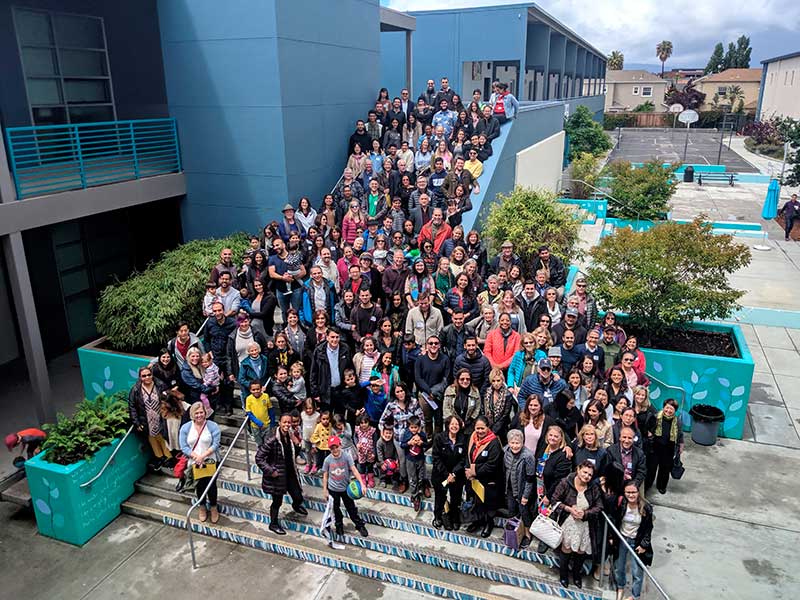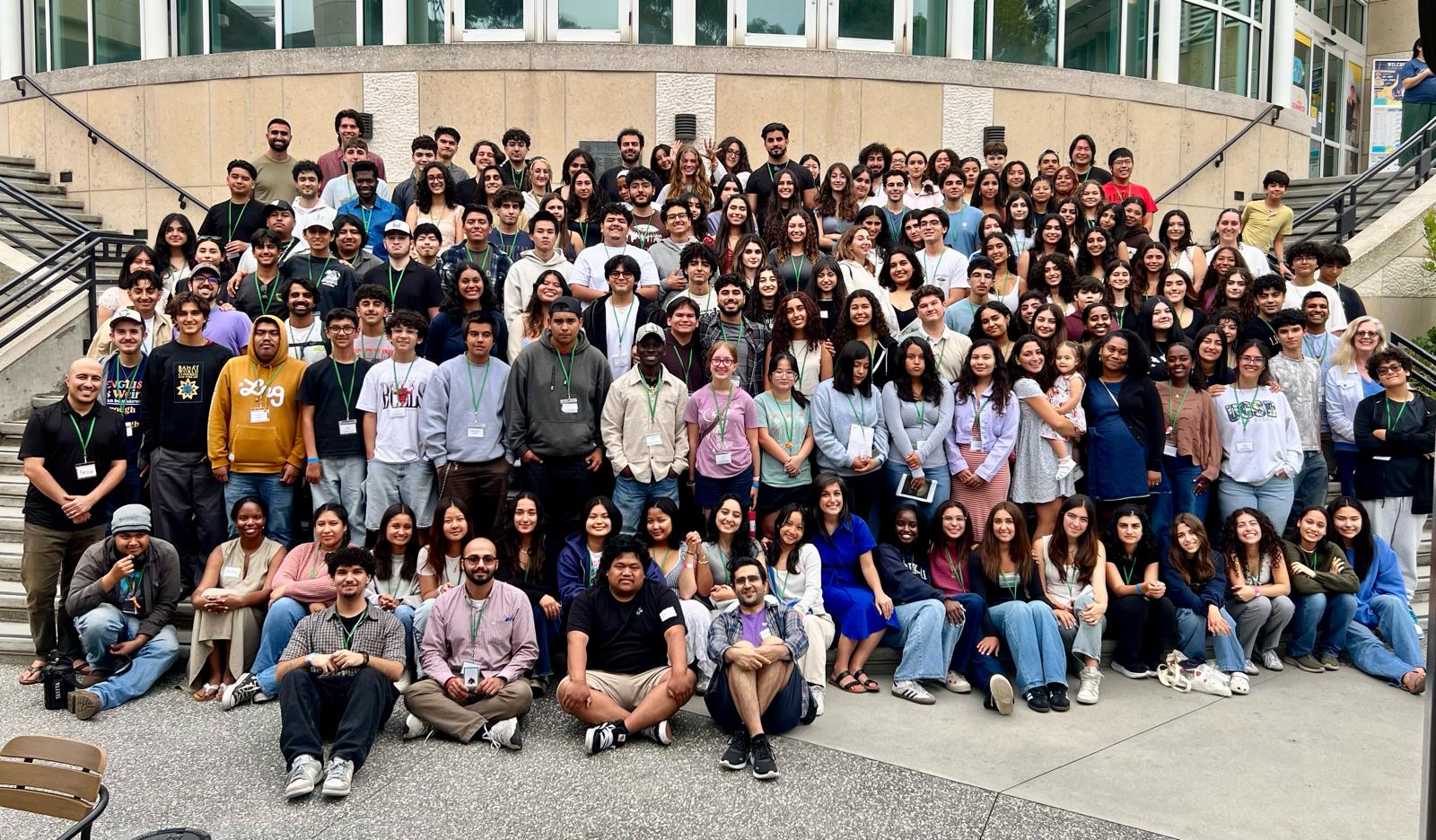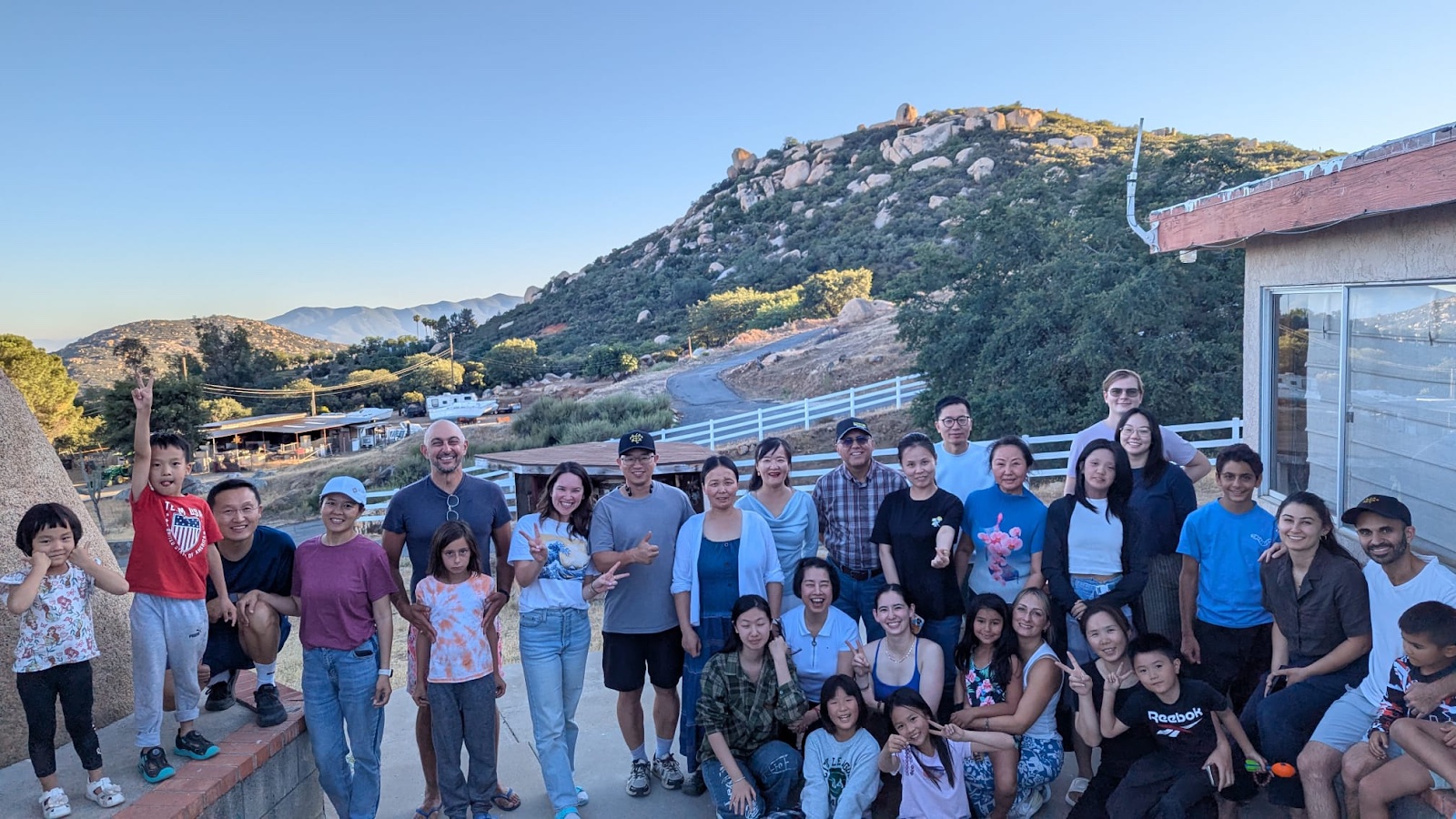
Seed planters at Interfaith Earth Festival express our interconnectedness through art
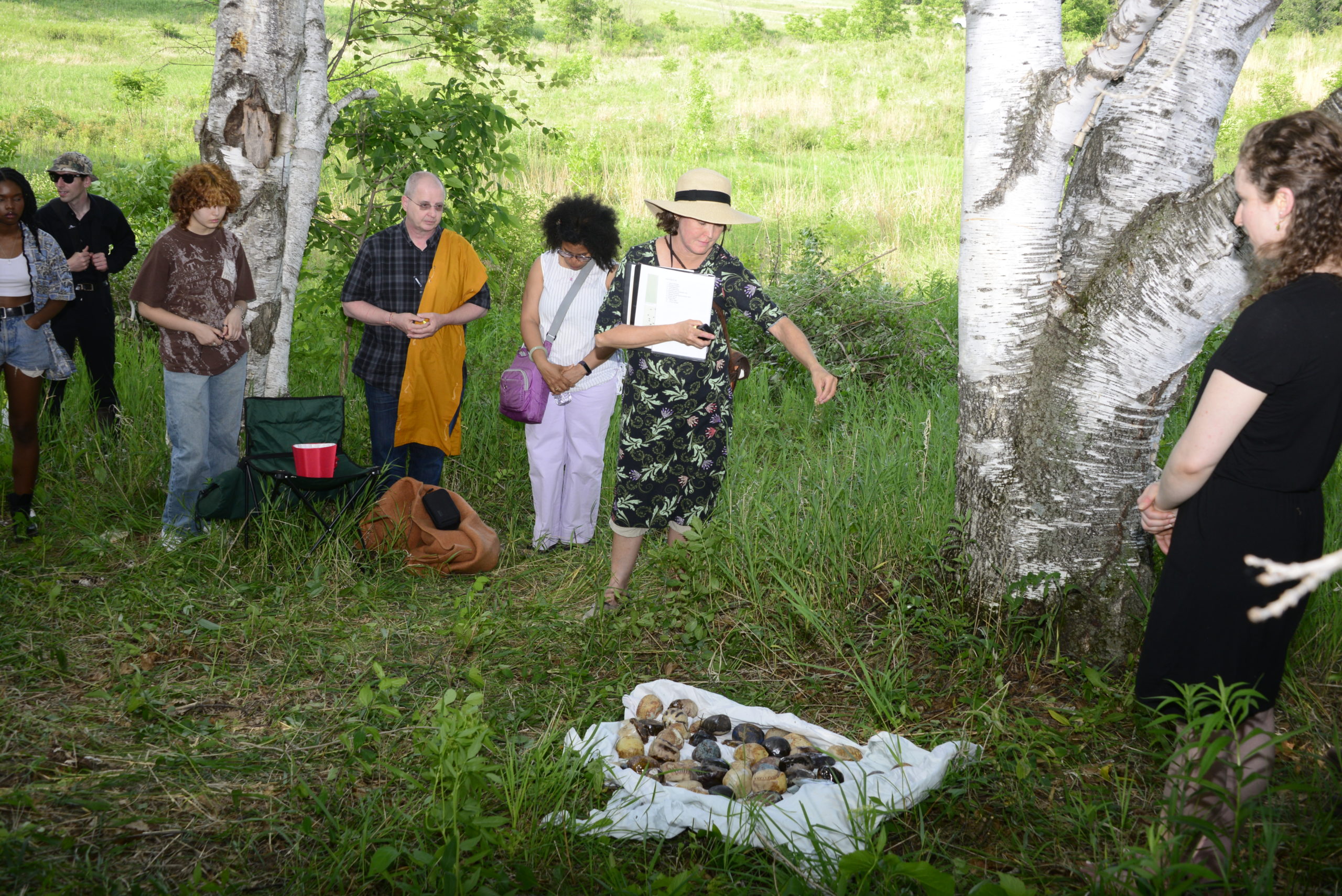
The term “planting seeds” is often used as a metaphor for the hopeful expectations that accompany new undertakings. In the case of an event sponsored by Faithbridge Interfaith in McHenry County, Illinois, the act of planting seeds was partly literal, partly artistic expression and partly figure of speech.
As an organization, Faithbridge Interfaith started small and has been blooming over the past 12 years or so. In 2019 they instituted an annual Interfaith Earth Festival to “honor our interconnectedness with all our relations and the sacred earth.”
At each of the festivals, those gathering make some form of art to help them manifest their prayers and intentions.
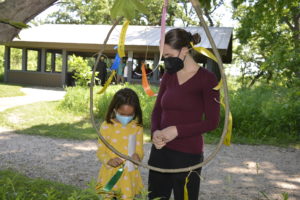
The first year they wrote intentions on ribbons tied to a wooden ring, says Laura McLuckie-Khandan, a member of the Baha’i Faith who serves on the board of the organization.
This year they created a time capsule. “We had everyone write on a card what they wanted and then the McHenry County Conservation District compiled them and will put them in the park in a location to be determined,” McLuckie-Khandan says.
And in 2021, prior to the event each participant got two pounds of ceramic clay which they formed, fired and glazed into “seeds” on which they painted their intentions.
These seeds traveled and were displayed at the Art in Response to Violence Conference at Northeastern Illinois University in Chicago and at the American Muslim Community Organization in Lake in the Hills.
Then, as an act of prayer, the seeds, along with actual native flower seeds, were planted in the ground.
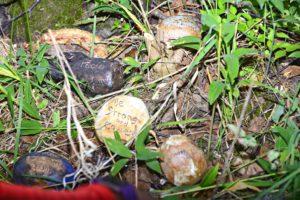
“Before you see the growth of a seed, it grows underground. It takes time, and one must be patient,” McLuckie-Khandan said at the dedication. “Often one needs to collaborate with others to plant, nurture and harvest.”
She says the idea of making ceramic seeds was partly inspired by David Drake, also known as Dave the Potter, an exceptional ceramic artist and poet from South Carolina who, as an enslaved person during the mid-1800s, wrote upon his pots when it was dangerous for him to do so. At the time, the state had harsh anti-literacy laws designed to prevent slaves from reading or writing. Inscribing his creations with couplets was an extraordinary act of artistic expression.
At the seed dedication, the names of 71 people who died in recent years as a result of violence in sacred spaces were read: those from the Mother Emanuel Church in Charleston, the Tree of Life Synagogue in Philadelphia, and the Al Noor Mosque and Linwood Islamic Centre in Christchurch, New Zealand.
Others who had died during the previous pandemic year were also remembered, as well as a special acknowledgement of the 100th anniversary of the passing of ‘Abdu’l-Baha, one of the Central Figures of the Baha’i Faith.
According to McLuckie-Khandan, the place where they planted the seeds, Pleasant Valley Conservation Area, holds special significance. It was the previous site of a summer camp and retreat center designed for inner city youth.
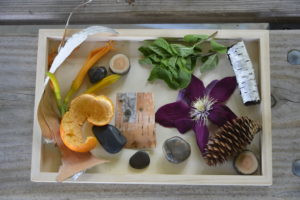
Beginning in 1952, and lasting for more than forty years, thousands of city children ventured into the wilds of McHenry County to work and learn in a farm setting. Campers, many of whom were from Chicago, some 60 miles away, explored their natural environment through activities ranging from natural history studies to social sciences. It was a place where children could experience nature and farm life – often for the very first time. It is also where Martin Luther King Jr, Ralph Abernathy, and other Civil Rights leaders stayed when they wrote and planned the Chicago Freedom Movement of the late 1960’s.
The Interfaith Earth Festival is just one of the events sponsored by Faithbridge. The organization has also given rise to opportunities for like-minded people to have important conversations around racial healing.
In 2017, after giving a presentation at the organization’s annual Martin Luther King Day prayer breakfast, Phyllis Unterschuetz, a Baha’i from Georgia who used to live in nearby Crystal Lake, shared a workshop on racial healing.
“That pancake breakfast was amazing,” says Unterscheutz. “Despite a morning ice storm it was packed to the rafters, and I was really straightforward with what I had to share,” she says.
“I told them how it was a handicap to grow up where everyone around you is white. I had lived my whole life in these white spaces and it did a number on my brain.
“I told the people what needs to happen is that they have to get out of their bubble and start creating some relationships with Black people…and I was not genteel about saying it,” Unterscheutz shares.
“We have an opportunity to make changes–even in the unconscious racial stuff. We have a chance to do something different to become a community that embraces racial justice.
“To the few Black people in attendance I admitted that I had no right to ask anything of them, but I did ask if they could be patient.” Unterscheutz, an experienced facilitator, hosted a followup workshop.
“There were several people who went with the intention of finding others to work with and to have racial healing dialogues,” McLuckie-Khandan says.
“And since January of 2017, we have continued to meet. We call it ‘Continuing the Conversation (CTC) on racial healing.’”
One of the people who attended the workshop and has been engaged in the conversations is Linda Porter of West Dundee.
“I personally want to break down the stereotype that Blacks are robbers, killers, thieves and liars. I want to allow people to see who we really are.
“I don’t want people to say, ‘Well, I have this one Black friend…’ I want them to get to know me, to see me as God created me to be,” she says.
Porter and her husband are both Christian ministers and have been engaged in education and ministry in prisons and hospitals.
“I grew up in the [public housing] projects in Chicago,” Porter says, “and my mother always told me that ‘you may live in the projects, but you are not the projects.’”
“I do think we are making inroads in creating relationships,” Porter says of the CTC group. She has been a member of panel presentations at several local corporate events and at McHenry County College. “And since we’ve gone online during the pandemic we have even more participation.”
Sue Burton of Crystal Lake says that the group does a good job of presenting topics but doesn’t lecture. “The meetings help create more awareness of everyday injustices—those that happen in line at the grocery store or in school–and give people confidence to speak up to begin to correct those injustices,” she says.
“Me having Black friends helps me see the world differently and have a richer life,” she says.“The CTC helps to build the relationships between people who then lay the groundwork for powerful systemic change. Until we see that diversity benefits all people we will continue to fall short.”
McLuckie-Khandan, who is white, says that the county has been transitioning from farmland to suburban developments. The racial makeup is also changing.
“When I was growing up,” she says, “there was very, very little diversity. You knew everybody’s name, who was of color. Compared to that now it is much more diverse.”
The Continuing the Conversation group has met with McHenry County faith leaders and local police departments. McLuckie-Khandan says that it is particularly poignant that one group member’s son was killed in 2013–a year prior to Michael Brown–by the same suburban St. Louis police department.
“She and I have met with police officers several times,” McLuckie-Khandan says. “That’s part of what we’re doing. Unfortunately there is stuff that keeps happening that makes this CTC group ever more necessary.”


